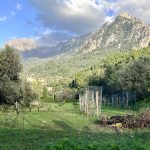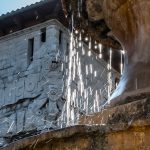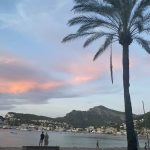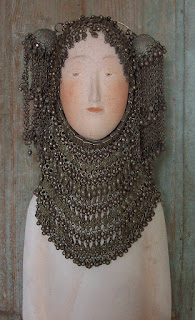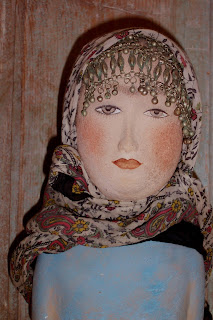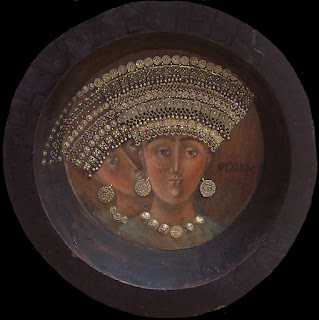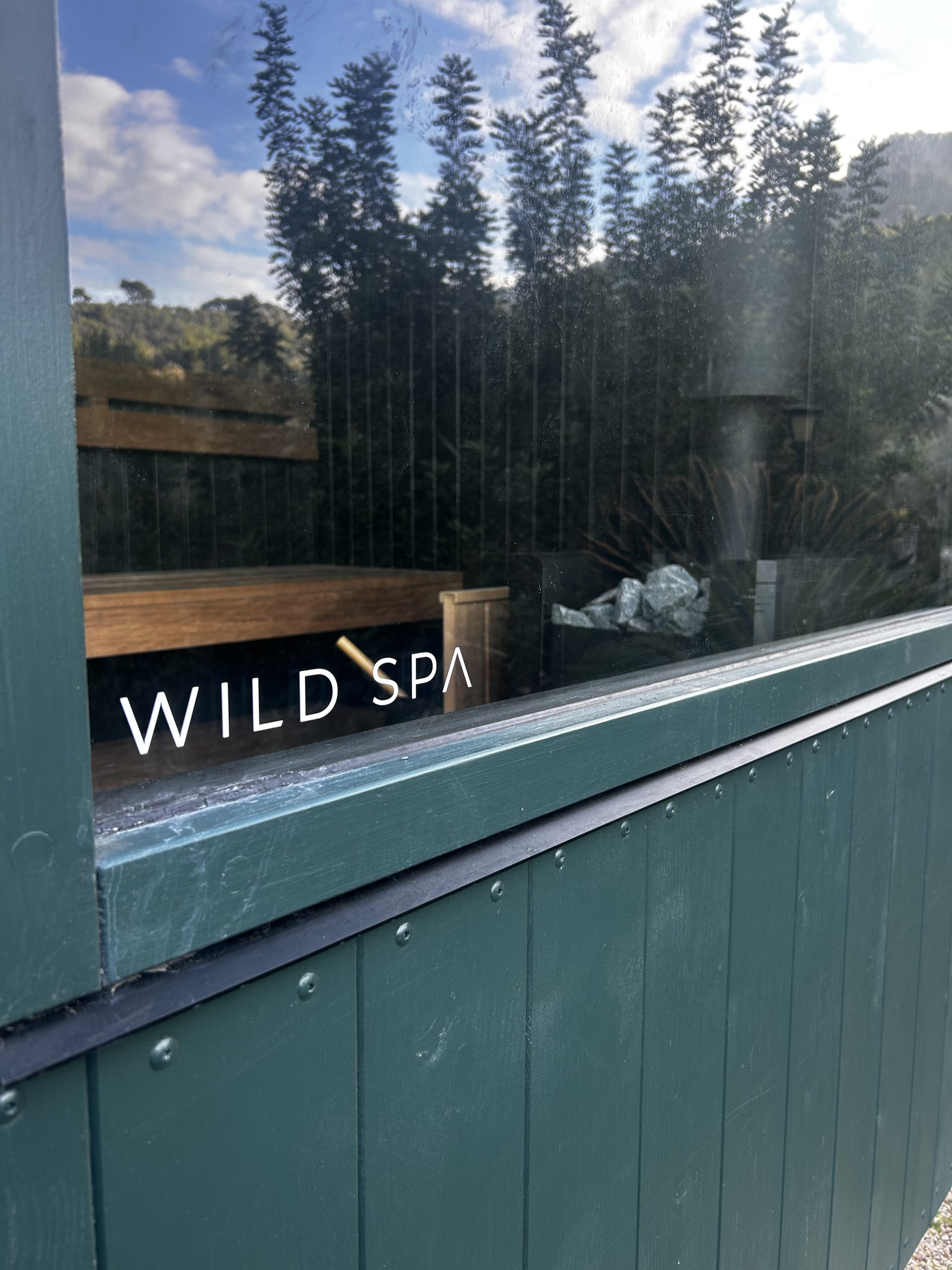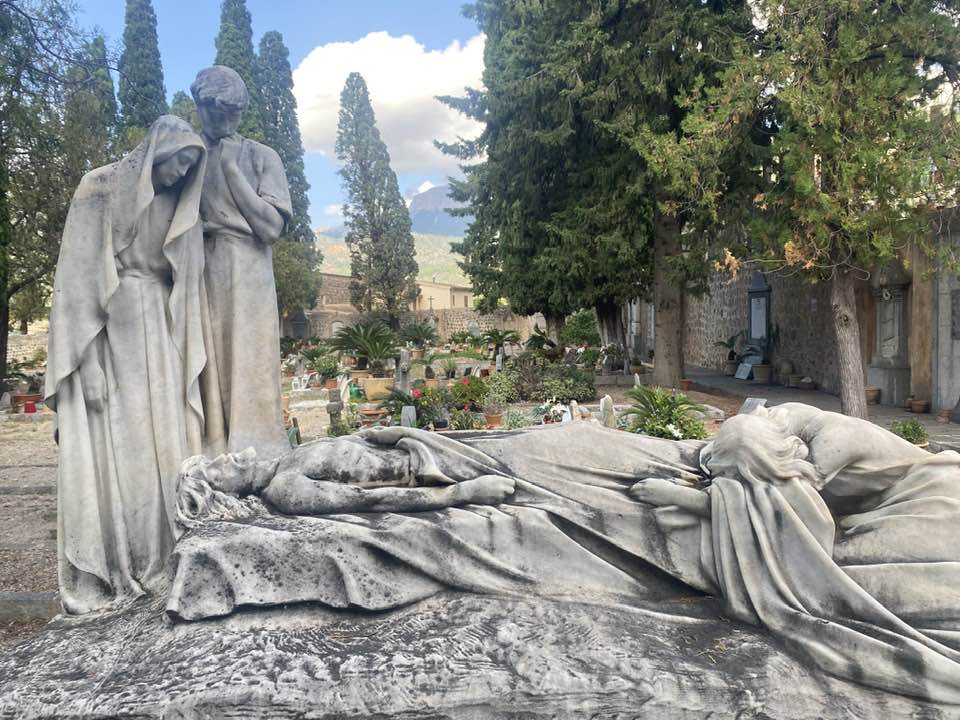Lena Yazykova in Moscow to Elena Castillo in Soller
By Shirley Roberts
Published in the Majorca Daily Bulletin
on Sunday 4th June 2017
Elena is a true Muscovite with her life spent in the heart of Russia. The fact that this life was spent 1500 km from the sea created in her a desire that one day she would spend her life near the water. In her early days that seemed to be an impossible dream as travel wasn’t easy and life in her world was very exciting and fulfilling. To set the scene Elena lived a comfortable life in Moscow with her architect father and musician mother. She studied at the famous Stroganovskoe Academy of Design Arts and became an Architectural Designer. The Government gave her design projects and museums and state buildings were amongst the many works she did for her country. She was appointed the Art Director and Designer of Industrial Fairs throughout Russia. Her design work on the 1980 Olympic Games was legendary, she won prizes and acclaim and her work was revered by the people.
Art for Elena was never going to be one dimensional and she experimented with fabrics and designed from rubbish to create the most amazing works. She was a rare mixture of artist and peace maker. For her Art is organising life to make things live in peace and privacy. In her search for balance she evolved into the world of the sculptor and created big heads and human size installations. Buildings bore her trademark and individual pieces were snapped up by collectors. Her first exhibition of sculpture was in 1987 in Moscow followed by the beginning of international acclaim in Italy.
The word was out about Elena and her work, travels and exhibitions followed. Her famous Kokulla’s – dolls sculptures, some measuring as much as 5 metres, all displaying her hand woven fabrics and kilims were all taken to Sweden for their Russian Exhibition. The wider world was knocking on the door but before embracing it Elena opened the now famous ‘Roza Azora’ non-profit art gallery in Moscow. This was to encourage other local artists to display their work and take part in a ‘gallery as a home’ recreating a place of childhood memories. In this non-political setting she introduced artists, poets and musicians to meet, discuss and create. This was soon ‘the’ Gallery to visit and became a favourite of Muscovites. Elena takes refuge in her Art and this world of exposure was as exciting as it was scary. The accolades kept on coming and TV programmes of her work and her life were made. The Russian government awarded her the ‘Honourable Artist of Russia’ medal. Her work was now in private and public collections worldwide and many museums.
The sea and a different life finally called and she took off for a journey of family life, dog walking and serenity in Turkey. She landed in the ancient Roman town of Side which was little more than a village in those days. Anthony and Cleopatra had been there before Elena and the the romanticism and art were not lost on her. Her friends called her to Russia very often as they needed her back to pursue other ventures but she resisted often just to have a little space in her life. Finally, their calls became insistent as there was an American client who needed her architectural design expertise and wouldn’t accept anyone other than her.
Enter David Castillo into her life and finally her heart and this began a whole new chapter. Elena returned to Moscow and David for awhile before his work took them to Saudi Arabia.
This was the Saudi of colonialism, embassy parties and ex pat life. The fascination of the lifestyle and knowing that there was no way of truly understanding unless you had been born into that world was to haunt Elena. She loved the people and said that ‘Saudis are very beautiful people. They go to the heart of humanity and are joyful and taught me so much.’
Work and research into Coptic textiles and art coupled with travels to the art worlds of Lebanon and Syria gave her a new education which influenced her work. She began to exhibit her work at the Embassies. The ability to open a gallery and just work was not an option for her. The separate colonial world of the embassies was to provide a unique showcase and is the reason that so many of her fine sculptures found their way into Saudi palaces. Eighteen years is a long time and her understanding of the people and their lives had only taken shape when it all ended. The terrorist attacks after the Iraq war sent them and many others away from the deserts of Saudi back to their home countries to contemplate what to do next.
David owned a property in Majorca and introduced it to Elena on the basis that it was halfway between their two worlds of Moscow and Texas. The sea, the mountains and the light dived into Elena’s soul as soon as she arrived here and the next chapter started. It was truly love at first sight. The Soller Valley is full of promise for this next phase of her life. The house renovation she has embarked upon is unusual because it requires the building of a kiln big enough to fire a life size figure.
Elena talked to me in Soller square about the freedom of old age. Retirement is not a concept she either understands or wants to be part of. Her creative mind is constantly evolving and her mantra is a very reflective one. She says that ‘happiness is doing work with the best part of yourself’. To have achieved a time in life where one is free to follow nothing but creativity is truly liberating.
As a child Elena idealised the West. She embraced the English language and became an avid reader of English literature in all its forms. To open her mind to the influences of the wider world was essential for her work and her enjoyment of life. Her journey from Russia to Soller is not one she would have predicted when she sat in front of of a fire on a freezing Russian day devouring the words of Jane Austen.
Elena is, by her own admission ‘absolutely Russian and a Muscovite’ but in the Soller Valley she has found the place that she wants to live and eventually to die. Her new collection of work influenced by the Mediterranean and the Tramuntana is eagerly awaited here and will bring in collectors’ world wide who are waiting for the latest works.
The artistic future of the Soller Valley with this talent and reputation in their midst is very exciting. Maybe one day Soller will have its own Roza Azora Gallery and be the hub of creativity that Moscow still enjoys with their own gallery of that name.
Elena Castillo is proud to be known by this name in Majorca but in Russia she will be for ever Lena Yazykova artist, designer and creative conscience of Russia. It was an absolute pleasure to talk to her.


